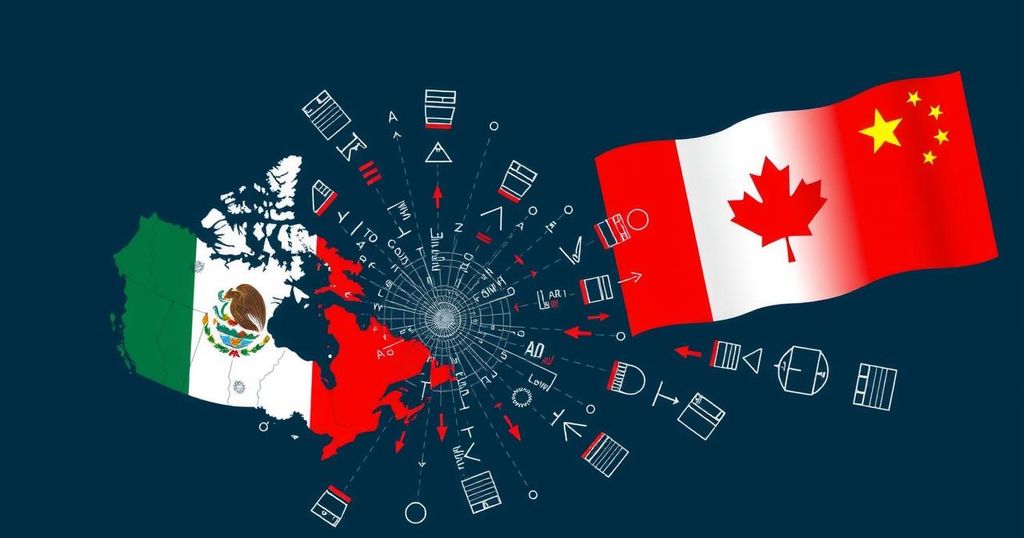President-elect Donald Trump plans to impose substantial tariffs on goods from Mexico, Canada, and China starting January 20th, in response to illegal immigration and drug trafficking. He proposes a 25% tariff on imports from Mexico and Canada and a 10% increase on Chinese goods. While intended to boost domestic manufacturing, economists warn of potential inflation and retaliatory trade actions.
On January 20th, President-elect Donald Trump announced a substantial increase in tariffs on goods imported from Mexico, Canada, and China, effective from the first day of his administration. He stated this policy would act as a response to illegal immigration and drug trafficking, specifically referencing fentanyl. Trump declared on his Truth Social platform that he would impose a 25% tariff on all products entering the United States from Mexico and Canada until these issues are resolved. In addition, he indicated that China would face a 10% tariff increase on existing rates for similar reasons, claiming inadequate cooperation from Chinese officials in addressing drug shipments to the U.S.
Historically, tariffs have been used as a strategy to protect domestic manufacturing and generate revenue. However, although foreign countries are often seen as bearing the brunt of these taxes, American consumers ultimately pay for increased costs imposed by companies purchasing imported goods. Economists warn that such tariffs could trigger inflation, with estimates suggesting that households could incur substantial annual costs. Despite concerns, Trump’s administration is expected to take a stringent approach to tariffs, possibly escalating to 60% on Chinese imports and imposing 10-20% on other imports. Trump’s previous experience in office indicated that such tariff actions could provoke retaliatory measures from targeted nations, potentially sparking trade conflicts that hinder domestic manufacturing efforts.
The context of this article revolves around President-elect Donald Trump’s announcement regarding his tariff policy, which he has characterized as vital to addressing issues such as illegal immigration and drug trafficking. Historically, Trump has used tariffs to promote U.S. manufacturing and offset budget deficits created by tax cuts, relying on tariffs as a tool for economic policy. The implications of his proposed tariffs extend beyond trade balances, threatening increased costs for consumers and the potential for trade wars, as evidenced during his first term. This layer of complexity illustrates the interconnectedness of international trade policies and their domestic ramifications.
In conclusion, President-elect Trump’s proposed tariffs signify a commitment to a contentious trade strategy that seeks to simultaneously address illegal immigration and drug trafficking while promoting American manufacturing. The potential fiscal impact on U.S. households, coupled with the likelihood of retaliatory actions from affected countries, represents significant uncertainty for the future of American trade relations. Trump’s aggressive tariff agenda during his second term could lead to complex economic outcomes and merit close scrutiny as events unfold.
Original Source: edition.cnn.com






